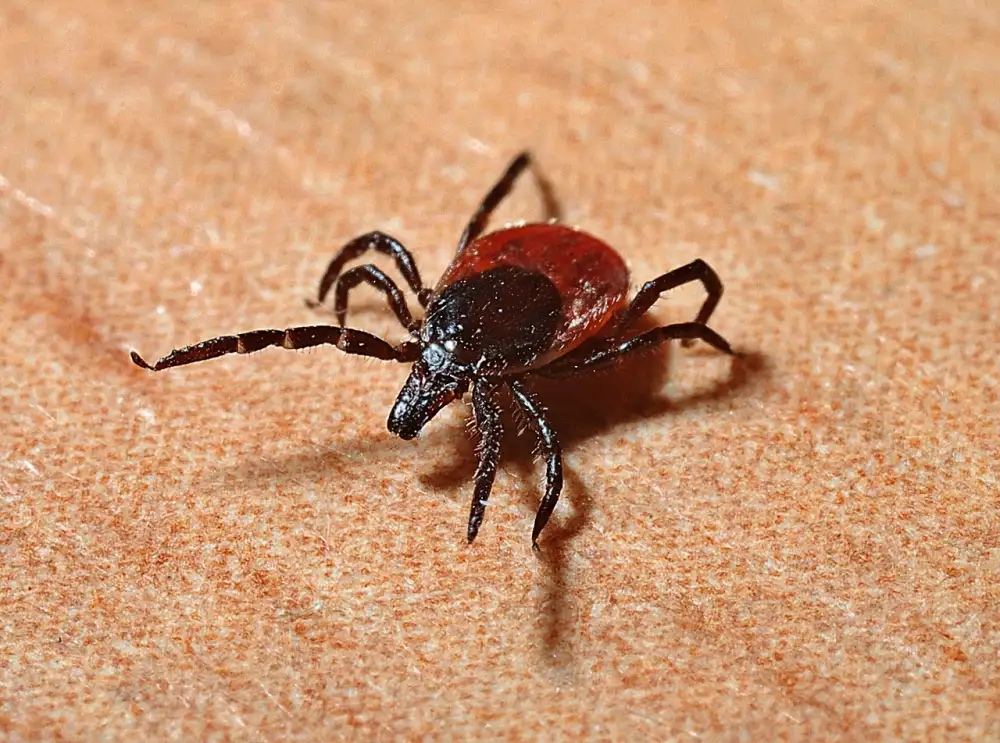Unveiling the Link: Can Lyme Disease Trigger Weight Loss?

Lyme disease is a tick-borne illness caused by the bacterium Borrelia burgdorferi. It is most commonly transmitted through the bite of an infected black-legged tick, also known as a deer tick. The disease was first identified in Lyme, Connecticut, hence its name. Lyme disease can affect people of all ages and is most prevalent in wooded and grassy areas where ticks thrive. If left untreated, Lyme disease can lead to serious health complications. Early detection and treatment are crucial in managing the symptoms and preventing long-term effects.
Symptoms of Lyme disease
Lyme disease, caused by the bacterium Borrelia burgdorferi, is transmitted to humans through the bite of infected black-legged ticks. The most common early sign is a distinctive skin rash called erythema migrans, which appears as a red bull's-eye pattern around the tick bite. Other symptoms may include fever, chills, fatigue, muscle and joint aches, and swollen lymph nodes. As the disease progresses, it can affect the nervous system, heart, and joints if left untreated. Early recognition of these symptoms is crucial for prompt diagnosis and treatment.
Impact of Lyme disease on the body
Lyme disease, caused by the bacterium Borrelia burgdorferi, can have a significant impact on the body if left untreated. The bacteria spread through the bite of infected ticks and can affect various systems, including the skin, joints, heart, and nervous system. If not promptly diagnosed and treated with antibiotics, Lyme disease can lead to long-term complications such as arthritis, neurological issues like nerve pain and inflammation, cardiac abnormalities, and cognitive problems. These effects can severely impair a person's quality of life if not managed effectively.
Connection between Lyme disease and weight loss
Lyme disease, caused by the bacterium Borrelia burgdorferi, can lead to weight loss in some patients. This weight loss is often a result of decreased appetite due to symptoms such as nausea, fatigue, and muscle aches. Additionally, the body's immune response to the infection can increase metabolism and energy expenditure, contributing to weight loss. In severe cases, Lyme disease can also affect the gastrointestinal system, leading to malabsorption of nutrients and further exacerbating weight loss.
Factors contributing to weight loss in Lyme disease patients
Factors contributing to weight loss in Lyme disease patients can be attributed to several key reasons. Firstly, the inflammatory response triggered by the infection can lead to a decrease in appetite and changes in metabolism, causing weight loss. Additionally, symptoms such as nausea, vomiting, and gastrointestinal issues commonly experienced by Lyme disease patients can further contribute to a reduced caloric intake and subsequent weight loss. Moreover, the fatigue and muscle weakness associated with the disease may result in decreased physical activity levels, leading to a decline in muscle mass and overall body weight. It is essential for healthcare providers to closely monitor the nutritional status of Lyme disease patients and provide appropriate support to mitigate weight loss effects during treatment.
Importance of early detection and treatment
Early detection and prompt treatment of Lyme disease are crucial in preventing severe complications, including weight loss. When diagnosed early, antibiotics can effectively treat the infection and reduce the risk of long-term health issues. Delayed or inadequate treatment can lead to chronic Lyme disease, where symptoms persist and may worsen over time, potentially causing unintended weight loss due to the body's prolonged inflammatory response. Therefore, it is essential for individuals experiencing symptoms of Lyme disease to seek medical attention promptly to receive appropriate care and prevent further health complications.
Conclusion and Recommendations:
In conclusion, Lyme disease can indeed trigger weight loss due to various factors such as decreased appetite, nausea, and inflammation. It is crucial for individuals experiencing unexplained weight loss along with other symptoms like fatigue and joint pain to seek medical attention promptly. Early detection and treatment of Lyme disease are vital in preventing further complications and promoting overall well-being. Patients should follow their healthcare provider's guidance on proper treatment protocols, including antibiotics and lifestyle adjustments. Maintaining a balanced diet, staying hydrated, and engaging in gentle exercise can also aid in the recovery process. Remember, listening to your body and seeking professional help are key in managing Lyme disease effectively.
Published: 18. 03. 2024
Category: Health



